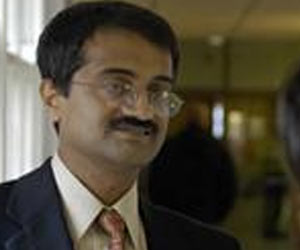Thousands of surgeries were cancelled in the UK last year for ‘non-clinical’ reasons. An interesting excuse was lack of shavers to prepare patients.
The excuses make a delightful reading – they simply forgot a patient waiting in a side room, a surgeon disappeared following a fire alarm, a patient’s interpreter failed to show up, and so the list goes.Leeds Teaching Hospital was the worst trust for cancelling operations at the last moment, closely followed by Plymouth Hospitals Trust (1,346).
At the Pennine Acute Trust, which runs hospitals in Oldham, Bury, Rochdale and Manchester, six procedures were cancelled because the surgeon was on holiday.
At Plymouth Hospitals Trust, 197 were halted because of a lack of staff in theatre.
The Department of Health figures, revealed by a Freedom of Information request, revealed that the number of operations cancelled for non-clinical reasons in 2007/08 was 57,382 - 10 per cent higher than the year before.
Experts now predict that the figures could top 64,000 for the first six months of this financial year.
Advertisement
Last year, 7,827 complaints were sent to the watchdog for independent review. Half were upheld or sent back to the trust because the initial response was not good enough.
Advertisement
Patients were most likely to complain about their GPs. One in eight were about family doctors - double the number complaining about nurses.
The commission said the report showed that some trusts were still not responding to complaints effectively. Each year, the NHS delivers 380 million treatments and receives 135,000 complaints.
Anna Walker, the watchdog's Chief Executive, said: "Considering that millions of treatments are delivered by the NHS each year it is perhaps encouraging that we only receive around 8,000 complaints a year.
"However, it is concerning that around half of complainants received an inadequate response from the trust when they first complained and we required further work to be done on the complaint.
"It is also concerning that complaints raised with us continue to be about the same basic aspects of healthcare such as poor communication, inadequate treatment and failure to diagnose conditions.
"It is clear from our wider work on complaints that trusts are not always systematically learning from them and improving their services for the future as a result. They clearly need to do so."
Each year the NHS delivers 380 million treatments and receives around 135,000 complaints.
Complaints were mostly about hospital care and primary care as this is where the bulk of treatment is provided and a minority of issues were about mental health services and healthcare for people with learning disabilities.
More than four in 10 complaints to hospitals were about nursing care, such as nutrition, falls and observation of patients.
Just over one in 10 complaints was about GPs and a quarter of them were about delayed diagnoses.
Nigel Edwards, policy director at the NHS Confederation which represents over 95 per cent of NHS organisations, said: "There were 350 million treatments performed by the NHS last year and out of all this activity just under 9,000 complaints were made, 2,700 of which were upheld by the Healthcare Commission.
"Although it is reassuring that only 0.002 per cent of treatments in the NHS led to complaints, we agree with the Commission that learning from when things go wrong is a vital part of offering high quality, safe, compassionate healthcare. There are several initiatives, mainly from the Darzi review, that will help the NHS listen to what patients say and use this to improve services.
"When things do go wrong it is important that the process of complaining does not compound the original complaint, or create new concerns. The new complaints system provides NHS organisations with an opportunity to address these issues to make sure that complaints are handled better, learning from mistakes is improved and services are improved for patients."
Source-Medindia
GPL








